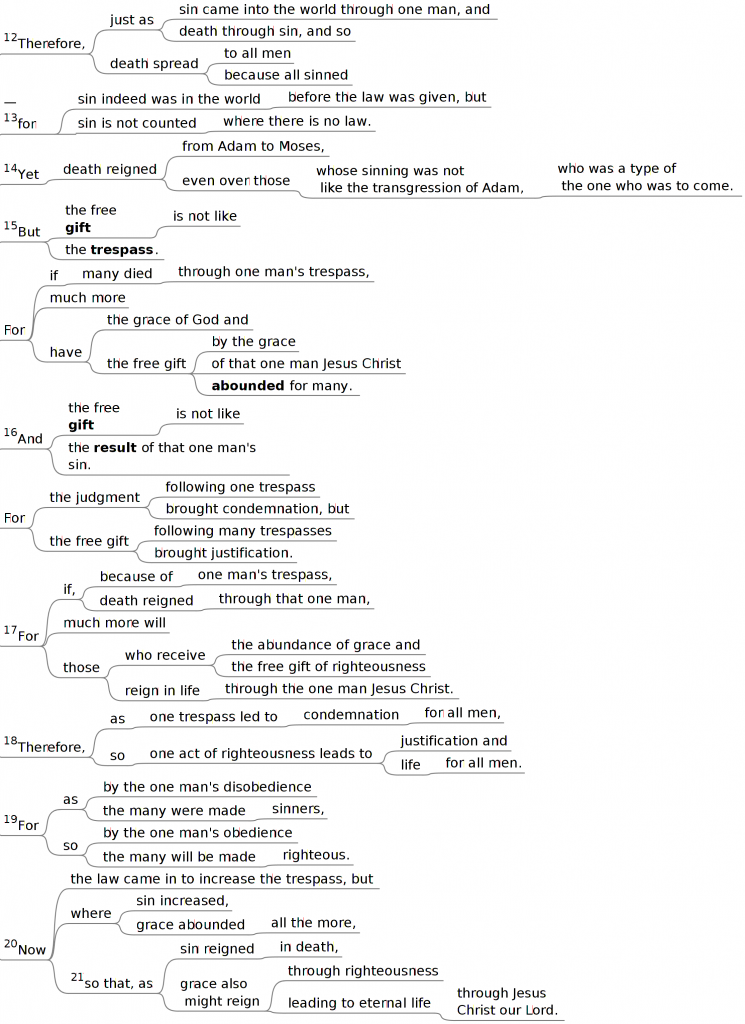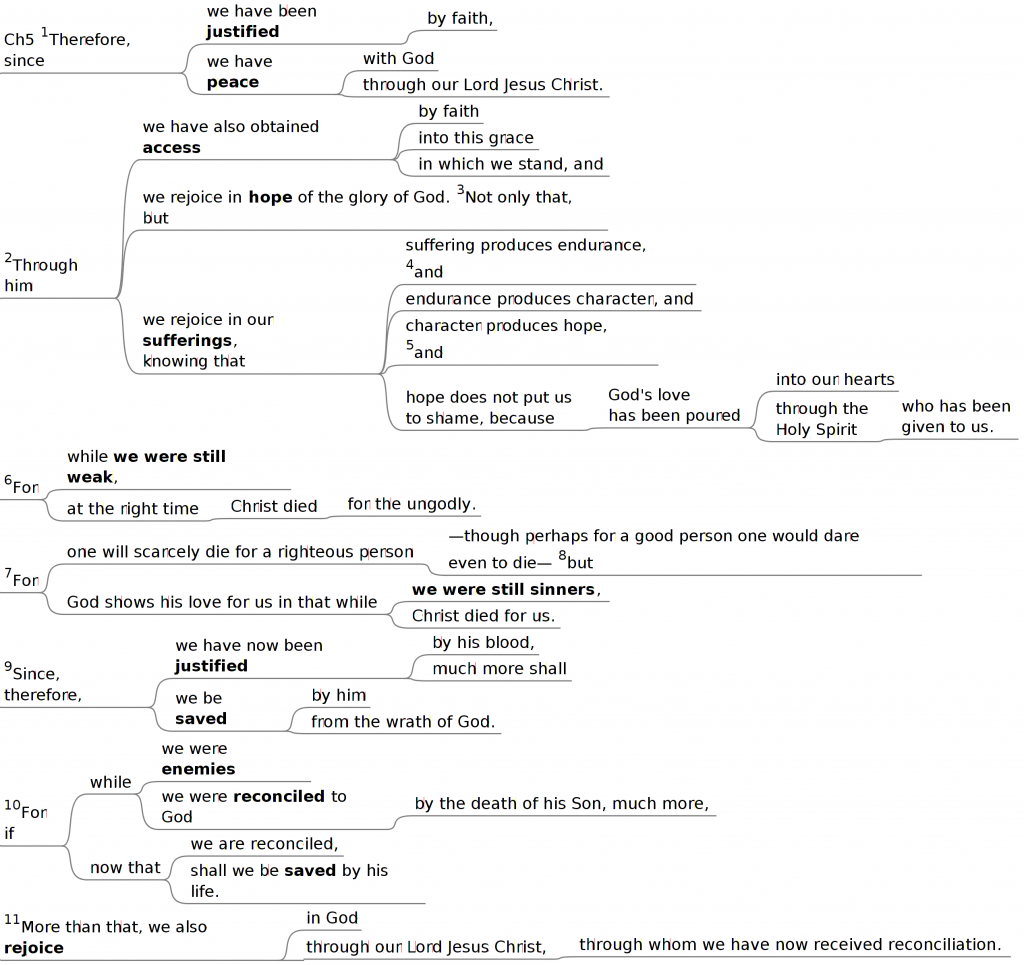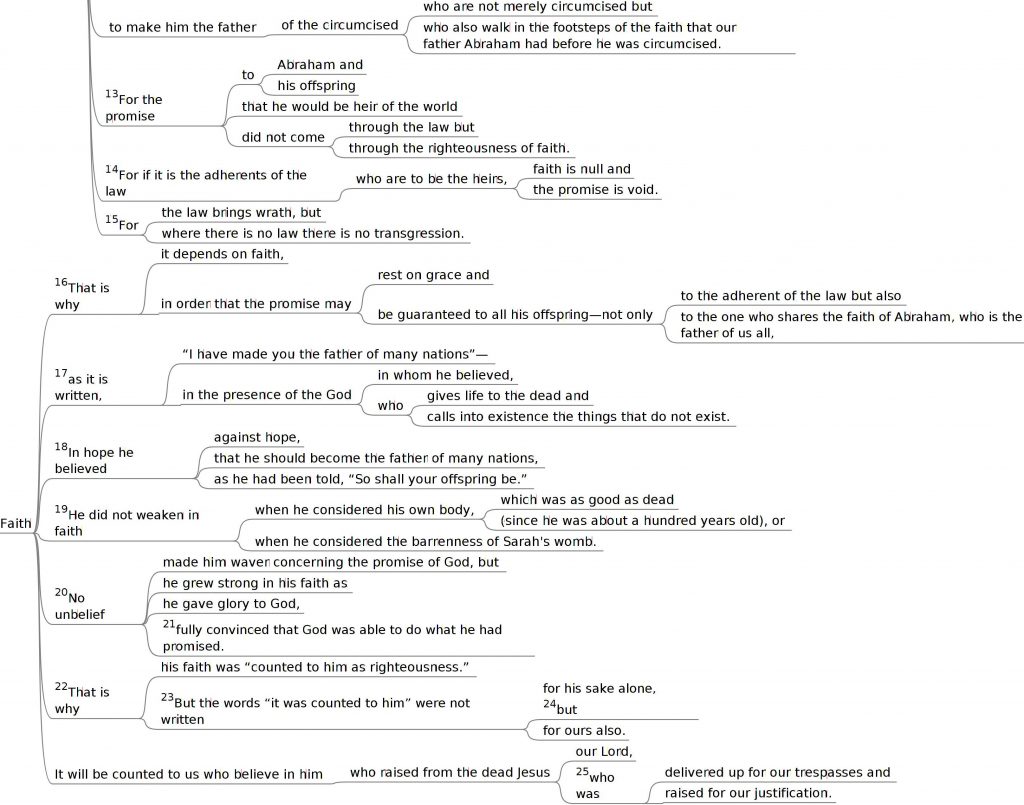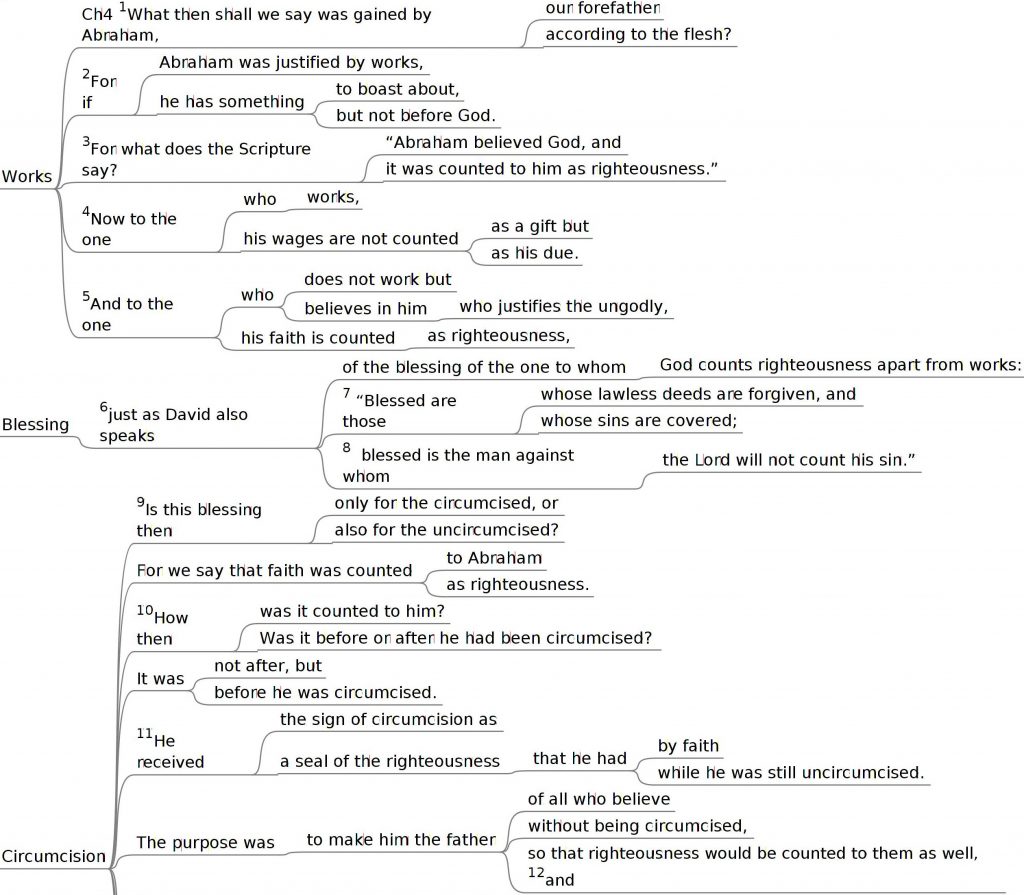Going through Romans 7, I find a lot of our discussions could use more background than we have. When talking about “the Law”, there are two questions I have found very helpful in finding my way through Biblical texts, as well as conversations about them with others. The first I talked about here, under the polysemy of the phrase “(the) law”. In short, this phrase can refer to different things, so the question I like to ask is What does “(the) law” mean here? That is, if you assume it refers to the mosaic law (as it often does), you will get mixed up if a particular use actually refers to natural (i.e., not codified) law, explicit laws given to others (before or after Moses), or to a general principles without any particular moral value —all of which I have found in scripture.
The second question that I find helps clarify texts on the law is What is/are the purpose(s) of the law? I was in a conversation lately where someone talked about an unintended consequence of the law, which sounded like God intended one thing, then had to go to plan B later. This problem is particularly relevant if you think that in the Old testament the purpose of the law was to make people righteous. Given that we know this is clearly not the case in Christ, it would seem to be a change, something of a Plan B for God. But does God have plan B’s? I don’t think so. So I think it helps to ask if it ever was the purpose of the law to make us righteous. Or to declare us righteous. Or to completely remove our sin, even after the fact. Rather, the scriptures tell us
For since the law has but a shadow of the good things to come instead of the true form of these realities, it can never, by the same sacrifices that are continually offered every year, make perfect those who draw near. Otherwise, would they not have ceased to be offered, since the worshipers, having once been cleansed, would no longer have any consciousness of sins? But in these sacrifices there is a reminder of sins every year. For it is impossible for the blood of bulls and goats to take away sins..…And every priest stands daily at his service, offering repeatedly the same sacrifices, which can never take away sins. (Heb 10:1-4,11 ESV)
There are other passages, many in the epistle to the Hebrews, which deal with this question of the purpose or value of the law and sacrificial system it contains. But rather that try to summarize it all myself, I’ll include here a couple paragraphs from the Westminster Confession of Faith (1646), in the Modern English Study Version (1993). I think it provides a great starting point to think about the purpose(s) of the law, whatever you think about what this confession says elsewhere. I got the text here, and the prooftexts here (plus a few of my own). This is the sixth and seventh paragraphs of Chapter 19, “The Law of God”:
6. Although true believers are not under the law as a covenant of works by which they are justified or condemned (Romans 6:14; 7:4; Galatians 2:16; 3:13; 4:4-5; Acts 13:38-39; Romans 8:1, 33; Heb 7:19,10:1-4,11), nevertheless the law is of great use to them as well as to others. By informing them —as a rule of life— both of the will of God and of their duty, it directs and binds them to walk accordingly (Romans 7:12, 22, 25; Psalm 119:1-6; 1 Corinthians 7:19; Galatians 5:14-23). It also reveals to them the sinful pollutions of their nature, hearts, and lives (Romans 7:7, 13; 3:20). Therefore, when they examine themselves in the light of the law, they may come to further conviction of, humiliation for, and hatred of their sin (James 1:23-25; Romans 7:9, 14, 24), together with a clearer view of their need of Christ and the perfection of his obedience (Galatians 3:24; Romans 7:24-25; 8:3-4). The law is also useful to the regenerate because, by forbidding sin, it restrains their corruptions (James 2:11-12; Psalm 119:101, 104, 128). By its threats it shows them what their sins deserve, and, although they are free from the curse threatened in the law, it shows the afflictions that they may expect because of them in this life (Ezra 9:13-14; Psalm 89:30-34; Galatians 3:13). The promises of the law likewise show to the regenerate God’s approval of obedience and the blessings they may expect as they obey the law (Exodus 19:5-6; Deuteronomy 5:33; Leviticus 18:5; Matthew 19:17; Leviticus 26:1-13; 2 Corinthians 6:16; Ephesians 6:2-3; Psalm 19:11; 37:11; Matthew 5:5), although these blessings are not due to them by the law as a covenant of works (Galatians 2:16; Luke 17:10). Therefore, the fact that a man does good rather than evil because the law encourages good and discourages evil is no evidence that the man is under the law rather than under grace (Romans 6:12-15; 1 Peter 3:8-12 with Psalm 34:12-16; Hebrews 12:28-29).
7. These uses of the law do not conflict with the grace of the gospel, but are in complete harmony with it (Romans 3:31; Galatians 3:21; Titus 2:11-14); for it is the Spirit of Christ who subdues and enables the will of man to do freely and cheerfully those things which the will of God, revealed in the law, requires (Ezekiel 36:27; Hebrews 8:10 with Jeremiah 31:33; Psalm 119:35, 47; Romans 7:22).
The most important point, for me, is that there are a number of legitimate uses of the law, none of which is to make us right legally (i.e., justification) or in fact (i.e., sanctification). We can therefore conclude that legalism (attempting to accomplish either justification or sanctification through the law) is and has always been an abuse of the law.





